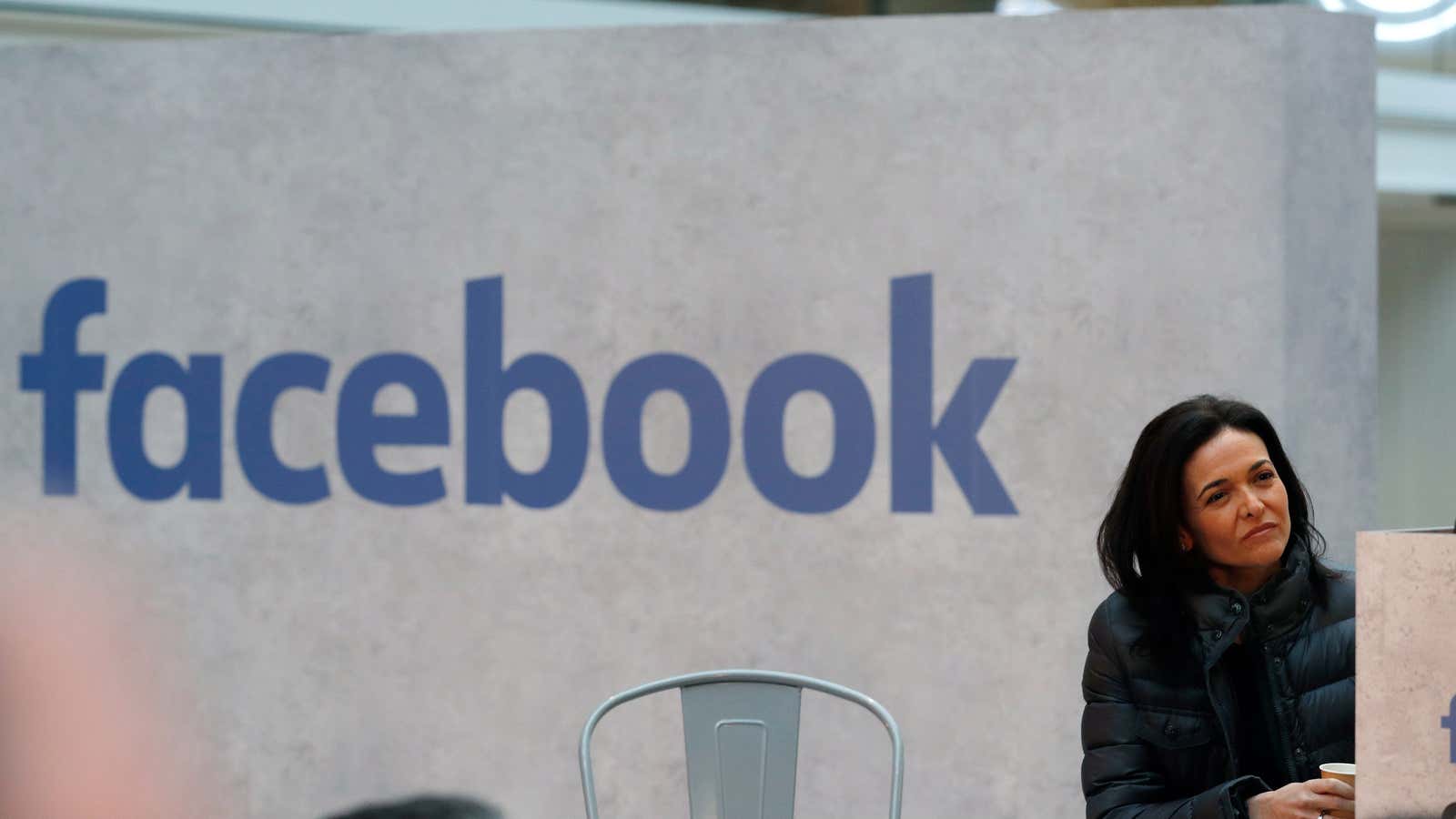Facebook is in the midst of the biggest firestorm of its 17-year history, and the executive putting out the flames isn’t CEO Mark Zuckerberg, but Sheryl Sandberg, the chief operating officer.
It’s Sandberg who is meeting with members of Congress this week. It was also Sandberg who was interviewed by Axios this morning and who offered an apology to the American people for allowing the social networking site to become a playground for Russian political manipulations.
In a traditionally structured organization, the CEO is the outward face of the company, while the operating officer manages, well, internal operations. So what’s going on?
Theory 1: It’s a smart allocation of resources
Zuckerberg, for all his obvious talents, isn’t a political creature. He’s never worked in politics or lived in Washington, and like a lot of the Silicon Valley elite, seems to view government with a curious mix of skepticism, idealism, and naiveté.
Not so Sandberg. She worked at the World Bank and the Treasury department, rising to chief of staff for former Treasury secretary Larry Summers, the influential economist whom she considers a mentor. (She was even born in Washington DC, but left as a toddler). It makes sense that she take the lead in Facebook’s negotiations with Congress: She speaks their language and knows the pitfalls. And it’s a sign of Zuckerberg’s maturity and respect for her abilities that he isn’t threatened by her authority over such a critical area.
Theory 2: Women get stuck with the dirty work
For Zuckerberg, there’s no upside for getting involved. Whether or not he’s contemplating a run for president, he can only lose by being associated with Facebook’s messy and embarrassing lapses in oversight. So he sends in Sandberg to clean up the mess, giving her a role that’s unfortunately common for women in business. Whether it’s reminiscent of Mary Barra at General Motors, Meg Whitman at HP, or of all the women stuck cleaning up after their partners, there’s something depressingly familiar about the dynamic.
Theory 3: They’re actually co-CEOs
The relationship of Zuckerberg and Sandberg never appeared to be the classic hierarchy of a boss and his lieutenant. Sandberg is older, more experienced and in some domains more authoritative than the man to whom she purportedly answers. Hired in 2008 as Facebook’s growth was exploding, Sandberg was charged with making the site profitable and putting in the processes and structures to sustain its success. In many ways, her role at Facebook was similar to Eric Schmidt’s at Google—an experienced executive brought in to manage a runaway startup—with one big difference: Schmidt was named Google’s CEO, with founders Larry Page and Sergey Brin taking other roles.
Co-CEOs aren’t common, but Oracle and TPG (formerly Texas Pacific Group) both have a pair of chief executives, as did Whole Foods for years. Zuckerberg is clearly the creative force that’s driven Facebook into the homes and phones of more than 2 billion people, but Sandberg is doing the work to keep it there. If she’s de facto co-CEO, she should share that title, too.
